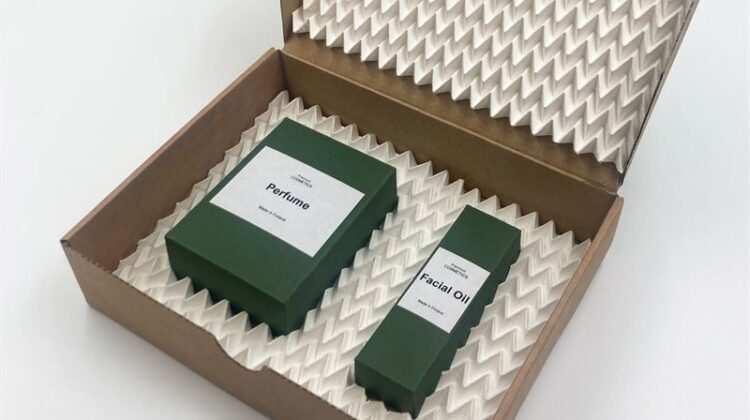
VTT Technical Research Centre of Finland, in collaboration with Aalto University and Finnish industrial partners, has developed a new technology for shaping paperboard in a continuous process to create roll-to-roll, “origami-inspired structures” for fiber-based packaging materials. The origami folds have the capacity to yield entirely new properties from paperboard. The structures’ light weight and durability provide a visually appealing alternative to protective packaging such as plastic and expanded polystyrene.
The market for packaging materials continues to expand with the dominance of e-commerce. However, there is also rising concern over the carbon footprint of packaging as well as the composition of materials. For example, global sustainability issues mean that demand for new, sustainable-packaging solutions continues to rise.
Involving 13 different companies, organizations, and universities at various stages, the FOLD and FOLD2 projects are keystones in a quest to renew and expand how paperboard is used as a packaging material. The two-phase project began with designing a machine to fold the “origami paperboard,” with the next phase of the project set to begin testing other materials. The outcome has been a success, leading to new applications to manufacture packaging material that is flexible, durable, versatile, and sustainable.
“The technology of FOLD is completely unique. Origami folding transforms paperboard into a flexible, protective, and visually appealing material unlike anything that’s previously been available for industry-wide production. The technology we’ve developed also has the capacity to produce foldable materials from recycled goods,” notes Jarmo Kouko, creator of the FOLD project and VTT research team leader.
The solution mechanically replicates the hand-folding process, adding the benefit of consistent precision and quality that would be difficult to achieve by hand. Because the technology can be applied to a range of commercially available paperboard grades, it requires no changes in the materials used.
Eight industrial companies were involved in the FOLD project, participating in both the development and funding. The current phase, known as FOLD2, began in March 2024 with continued support from a consortium of companies. The goal for the future is to expand the technology’s applicable usage to other materials and find partners across Europe for pilot projects, as well as global partners for the commercialization phase after FOLD2’s completion.

